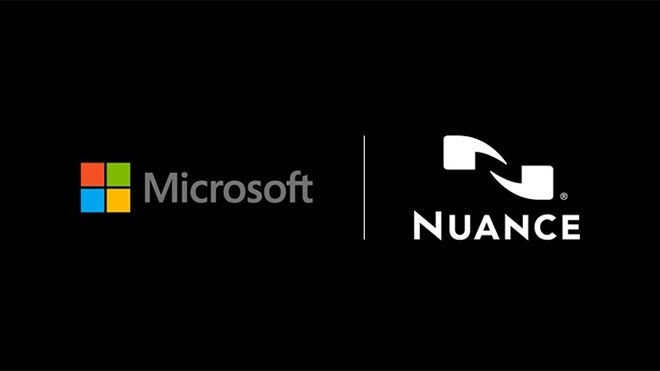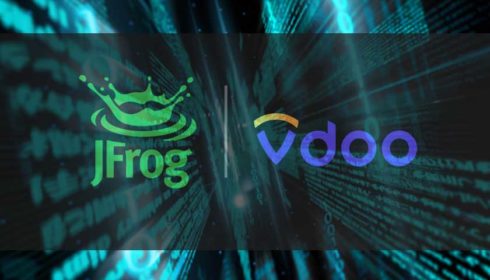The pandemic has powered advances in cloud based interactions and collaborations, paving the way for a post-pandemic hybrid workforce. Amidst this backdrop, the industry has seen significant growth in 2021 with plenty of robust acquisitions. Let’s take a look at a few:
1. Okta acquires Auth0
Okta and Auth0 are the heavyweights of the Identity and Access Management (IAM) sphere. They both sell identity authentication software but with different approaches. Okta’s product is centered in workforce identity and it serves companies and their workforces. Auth0’s product is centered in the consumer identity and serves developers and end users. As a unified entity, they leverage their individual experiences in the enterprise and developer communities to create an independent and unified platform that can provide secure access for customers as well as employees. Okta first approached Auth0 in 2013 for a partnership. After eight years the courtship finally culminated in a $6.5 billion deal where Auth0 functions as an independent business unit inside of Okta.
Okta was doing well in the enterprise market with its single sign-on and easy employee logins. However, it had to expand to the developer friendly and customer login markets to compete with Microsoft’s fast growing Azure and related identity focused products. Now Okta and Auth0 bring together the best of both worlds — Okta’s core identity and Auth0’s developer-centric offerings. Their comprehensive identity platforms solve every identity use case, regardless of the audience or user.
2. DigitalOcean acquires Nimbella
One of the top cloud computing companies, DigitalOcean acquired a serverless platform provider, Nimbella early September 2021. Nimbella builds on Kubernetes and Apache OpenWhisk and helps address the challenges developers face while adopting serverless computing. DigitalOcean is a cloud computing vendor that helps businesses scale themselves by offering IAAS. The acquisition enables DigitalOcean to build a serverless platform that unlocks the capabilities of the cloud for all kinds of developers. It also allows them to build and scale their apps and APIs by eliminating operational complexities.
3. Microsoft acquires Nuance
 Image Source: log
Image Source: log
Early in 2021 Microsoft acquired Nuance, the largest speech technology company, for $19.7 billion. Nuance specializes in conversational AI and speech recognition technology. Microsoft’s health cloud provides automated workflows and detailed analysis of structured and unstructured data. As they merge, the health cloud retains all of its integrated capabilities and adds “natural language understanding and processing” to its armor. Nuance adds an AI layer at the healthcare point of delivery by making the process of capturing clinical information more efficient and organized. This acquisition adds to the breadth and depth of Microsoft’s intelligent cloud based services. These services enable better decision making, end-to-end security, next generation customer engagement, and advanced security capabilities.
4. Cisco acquires Epsagon
Cisco acquired modern observability vendor Epsagon in November 2021. The acquisition adds the ability to monitor container based applications and a serverless computing framework to Cisco’s portfolio. Epsagon provides expertise as well as the software for tracing solutions across microservices, container based applications, kubernetes, and serverless environments. It offers payload visibility and end-to-end observability within microservice environments. Cisco is a networking solution provider that manufactures and sells internet protocol products. Epsagon offers Cisco the opportunity to provide full-stack observability to its customers.
5. NetApp acquires CloudCheckr
In late 2021 NetApp completed its acquisition of the leading cloud optimization platform CloudCheckr. Managing costs while accelerating to cloud applications has emerged as a major obstacle for organizations. CloudCheckr provides insight into lower cost and cloud visibility, while maintaining security and compliance. When these new capabilities are combined with NetApp’s cost optimization and automation services, organizations can better understand the benefits of cloud at scale — and control and improve the use of their cloud resources. CloudCheckr also offers complete AWS cloud management in one platform, as well as security monitoring across all AWS services. This acquisition will enable NetApp to help its customers achieve more cloud at less cost.
6. IBM acquires Turbonomic
IBM jumps on the observability bandwagon with its $2 billion acquisition of Turbonomic, a network performance management (NPM) and application resource management (ARM) software provider. IBM provides customers with AI-powered automation capabilities and services that run anywhere, on any hybrid cloud environment. Turbonomic’s full stack visibility and other capabilities are merged with this to create a single vendor approach for AIOps and observability. Turbonomic’s acquisition comes after IBM’s recent acquisition of Instana, an observability startup. Both of these complementary acquisitions will provide IBM with complete app observability and assure app performance and governance for any architecture and platform. Turbonomic’s NPM products will help IBM customers optimize their applications that are running in 5G environments.
7. Microsoft acquires Kinvolk
In an effort to bolster its capabilities in the Kubernetes space, Microsoft acquired Kinvolk, a six-year-old startup that develops open source cloud-based projects. Linux develops and distributes Flatcar Container Linux, which is a Linux distribution that helps make cloud containers like Kubernetes more platform-resilient. The Microsoft ecosystem can leverage Kinvolk’s Flatcar Container Linux as it guarantees that containers run on both cloud and on-premises environments. Kinvolk can further expand Azure’s hybrid container platform capabilities and increase Microsoft’s contribution in the container space. This acquisition is ideal for both parties. Kinvolk can continue to operate as an entity within the Microsoft ecosystem, and Microsoft can compete with AWS’ Bottlerocket container operating system and Google’s Container Optimized OS.
8. JFrog acquires Vdoo
 Image Source:pye
Image Source:pye
DevOps platform JFrog acquired cybersecurity firm Vdoo in June 2021 for $300 million. Vdoo has an AI based platform that detects software vulnerabilities as it focuses on analyzing and securing applications in their production context. Jfrog provides industry-leading security support to DevOps users. Their merger will help amplify JFrog’s security solution. It will provide a holistic process that efficiently consolidates security data. It will also provide the highest integrity to end-to-end delivery systems for security certified releases. This acquisition plays into JFrog and Vdoo’s joint vision about DevOps and security. They both believe that if any DevOps enterprise is not also a security company, it is only solving a small piece of the puzzle.
Conclusion
To accelerate application development lifecycles, enterprises are embracing microservices and containerized components on a large scale. This leads to an increase in complexity involving multiple teams focused on optimizing and securing every digital experience. This has led to organizations scrambling to integrate next generation infrastructure solutions that best help this process. In doing so, they need to make sure the integration process is seamless and leaves no holes in security that can be exploited by cyber criminals. The number of mergers and acquisitions only seem to be increasing, with 2021 being a banner year for firm acquisitions in the cloud computing space.
Featured Image Source: techmsd



